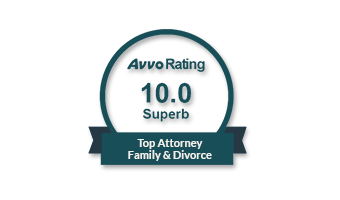Practice Area
Stepparent Adoption Process in Virginia
Stepparent Adoption: A Loving Step That Legally Unites Families
Building a family can take many forms, and the act of adoption is one of the most compassionate steps a person can take. Stepparent adoption, in particular, is a significant process that unites a family under the umbrella of love and legalities.
In Virginia, the stepparent adoption process is guided by specific state laws designed to protect the child’s best interests, ensuring they are placed in a secure and loving environment. This legal procedure solidifies the bond between stepparents and their stepchildren and grants them the same legal rights as the biological parent.
Reasons for Stepparent Adoption
Adopting a stepchild is a profound decision that allows you to create a secure, stable, and loving family environment, affirming the bond you share and granting your stepchild equal legal rights. In cases where the biological parent is absent or has given up their responsibilities, stepparent adoption offers your stepchild stability and security, cementing their place in your family and providing them with a sense of belonging and emotional support.








How to Start the Stepparent Adoption Process
Beginning the stepparent adoption process in Virginia is a significant decision that demonstrates love and commitment. If you’re thinking about this, you’re aiming to legally and emotionally solidify your family unit. Here’s what you need to do:
Legal Consultation
It’s highly advised to begin with an attorney focused on family law who can guide you through the complexities of Virginia’s legal requirements, ensuring you understand every step.
Consent
In most cases, consent from both biological parents is necessary. However, situations vary, and legal guidance is essential in navigating exceptions.
File a Petition
With your attorney’s help, file an adoption petition with your local Virginia court, marking the official start of your adoption process.
This commitment is based on a decision to legally strengthen and confirm an existing family bond. Engaging in this process enhances your connections and offers lasting security for your stepchild.
Custody vs. Parental Rights
Custody and parental rights are differing aspects of family law. Custody pertains to the physical responsibility and time spent with the child. Parental rights, however, relate to the legal decision-making rights over the child’s welfare, education, and health. Stepparent adoption involves the transfer of parental rights from the biological parent to the stepparent.
- International adoption – A Virginia Order of Adoption and a birth certificate may be obtained when adopting a child from another country. It is essential to ensure that all laws and regulations, both domestic and foreign, are honored throughout the process.
- Step-parent adoption – When a parent remarries, the new spouse can legally adopt their spouse’s children. If both birth parents agree to the adoption, and the child has lived in the home for over three years, a home visit can be avoided.
- Foster parent adoption – This is similar to step-parent adoption, but involves foster parents legally adopting the foster children they take into their homes.
- Interstate adoption – The Interstate Compact on the Placement of Children must be observed when a child is adopted across state lines.
- Close-relative adoptions – When a child has lived in the home of a close family member that is a prospective adoptive parent, they are able to be adopted by that close relative easily if the birth parent agrees to the adoption. However, without consent, a home visit is required and, if the time-frame is less than two years, it needs to be taken to court.


Do Biological Parents Need to Agree to an Adoption?
In Virginia, the biological parent’s consent is typically required for adoption. However, this may be set aside under certain circumstances, such as abandonment or failure to support the child. Additionally, if a parent has been deemed unfit due to abuse or neglect, their consent might not be necessary. Each case is assessed individually to ensure the child’s best interests are prioritized, and we have successfully completed adoptions for parents when the biological parent will not consent.
Adopting when Birthparents’ Whereabouts are Unknown
This can be a complicated situation. Under Virginia law, there’s a strict requirement to make careful efforts to find the birth parent. However, if the birth parent remains unreachable, the court has the authority to approve the adoption, especially if it decides that it serves the child’s best interests. This process ensures that every adoption decision prioritizes the welfare of the child. We have guided many families through this process.
Criminal History and Adoption
In Virginia, people with specific criminal histories cannot adopt, if the crime they were convicted for is on the barrier crime crime list or if they have a history of child abuse.
Process of Adopting a Stepchild in Virginia
Undertaking this significant legal process requires the expertise of a family law attorney to guide you through. The steps involved in adopting a stepchild are as follows:
- Petition to adopt: Formal request for legal recognition of the stepparent-child relationship.
- Home study: Assessment of the prospective adoptive home for suitability. In many circumstances, we can have this requirement waived.
- Consent from relevant parties: Required approval from the biological parent(s) and others involved.
Finalization in court: Adoption completion through a court hearing and the final decree issuance.
- International adoption – A Virginia Order of Adoption and a birth certificate may be obtained when adopting a child from another country. It is essential to ensure that all laws and regulations, both domestic and foreign, are honored throughout the process.
- Step-parent adoption – When a parent remarries, the new spouse can legally adopt their spouse’s children. If both birth parents agree to the adoption, and the child has lived in the home for over three years, a home visit can be avoided.
- Foster parent adoption – This is similar to step-parent adoption, but involves foster parents legally adopting the foster children they take into their homes.
- Interstate adoption – The Interstate Compact on the Placement of Children must be observed when a child is adopted across state lines.
- Close-relative adoptions – When a child has lived in the home of a close family member that is a prospective adoptive parent, they are able to be adopted by that close relative easily if the birth parent agrees to the adoption. However, without consent, a home visit is required and, if the time-frame is less than two years, it needs to be taken to court.
Ready to grow your family? Contact us today.
At the Slovensky Law Firm, we understand the intricacies of stepparent adoption in Virginia and are committed to guiding you through this journey with empathy and professionalism. Contact us today to establish the legal bond that already exists in your heart.
Remember, love makes a family. But proper legal measures ensure the security and legitimacy of that love. Adopt today, secure tomorrow.
Frequently Asked Questions About Stepparent Adoption
What is stepparent adoption?
Stepparent adoption is a legal process where a stepparent adopts their spouse’s child, granting them the same legal rights and responsibilities as a biological parent. This process solidifies the family bond and provides the child with legal and emotional security.
What are the steps to start the stepparent adoption process in Virginia?
The process begins with a legal consultation to understand the requirements. Next, the stepparent must file an adoption petition with the local court. Consent from the biological parent is typically required, and in some cases, a home study may be necessary.
What happens if the biological parent’s whereabouts are unknown?
If the biological parent cannot be located, the court requires a diligent effort to find them. If they remain unreachable, the court may approve the adoption if it serves the child’s best interests.
Do both biological parents need to consent to the adoption?
In most cases, both biological parents must consent. However, if a biological parent has abandoned the child, failed to support them, or been deemed unfit due to abuse or neglect, their consent may not be required. The court will prioritize the child’s best interests.
How long does the stepparent adoption process take in Virginia?
The timeline varies depending on the complexity of the case, whether consent is obtained from the biological parent, and the court’s schedule. On average, the process can take several months to complete.
Can a stepparent adopt without a home study?
In Virginia, a home study may be waived if the child has lived with the stepparent for more than three years and both biological parents consent to the adoption. Otherwise, a home study may be required to assess the suitability of the adoptive home.
What happens to the biological parent’s rights after adoption?
Once the adoption is finalized, the biological parent whose rights are terminated no longer has any legal rights or responsibilities toward the child, including custody, visitation, or child support obligations.
Can a stepparent adopt if they have a criminal record?
Certain criminal convictions, especially those related to child abuse or other serious offenses, may disqualify a stepparent from adopting. The court will review the criminal history to determine eligibility.
Can a child’s preference be considered in the adoption process?
Yes, if the child is of a certain age and maturity, their preference may be considered by the court. This is especially relevant in cases where the child has a strong bond with the stepparent.
Can stepparent adoption be reversed?
Once finalized, stepparent adoption is permanent and cannot be reversed except in rare cases, such as fraud or misrepresentation during the adoption process.
What happens during the finalization of the adoption?
The adoption is finalized in a court hearing where the judge reviews the case and issues a final decree of adoption. This legally establishes the stepparent as the child’s parent.
Do I need an attorney for stepparent adoption in Virginia?
While it is not mandatory, hiring an experienced family law attorney is highly recommended. An attorney can guide you through the process, handle legal challenges, and ensure the adoption is completed smoothly.


